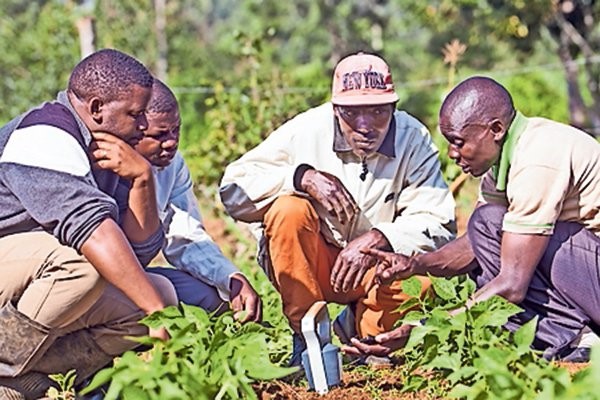29th September 2018
Agriculture is central to Kenya’s economy. Now, that is like a cliché. We have said it so many times that it is no longer news. Yet, it remains a national fact that we cannot run away from. With a contribution to the gross domestic product of about 18 percent, the sector supports 75 percent of Kenyans who derive part or their entire livelihood from it.
The percentage is higher in rural areas where the numbers stand at more than 80 percent. A sector as crucial as this, therefore, deserves more than passing attention from all concerned stakeholders. What should dominate national conversation is how farmers, both large and small-scale, can shift from the good old agriculture to agribusiness.
Agribusiness means putting profits, sustainability and inclusivity at the centre of the farm to fork process. The second Sustainable Development Goal calls on governments, and other stakeholders such as business and civil society, to work towards ending hunger and ensuring access by all people to sufficient food all-year-round by 2030. This cannot be achieved without significant and incremental investment in soil health.The problem with many farmers, and understandably so, is that they are often in a hurry to implement their ‘grand ideas’ and in the process they ignore all the warning signs and fail to ask the right questions.
One of the critical steps that is always overlooked by farmers is soil testing, which is the analysis of soil samples to determine the nutrient and contamination levels, composition, and other characteristics such as the acidity or pH level as well as the presence or lack thereof of important micro-organisms. Soil testing is at the heart of effective soil management, which in turn is a necessary requirement for profitable yields over a long period of time.
SAVES MONEY AND INCREASES YIELDS
Healthy soils protect biodiversity and contribute to healthy food, free of harmful chemicals which are detrimental to human, animal and plant health. Additionally, healthy soils also mean healthy water systems as no chemicals are discharged into rivers and other water sources. Soil testing helps the farmer to determine whether the farm is suitable for maize, green grams, cabbages, watermelon or just plain old potatoes.
You may have held a dream of growing onions on your farm but the results of soil test will persuade you otherwise.
Secondly, soil testing provides information on deficiency or excesses of minerals, which in turn provides guidance on whether to use fertiliser or not, how to apply the fertiliser and when to do it.
Not all soils require fertiliser and not all soils that require fertiliser need the same type of fertiliser at the same time.
Virgin, well-drained soils in some areas may be reasonably balanced and, therefore, may not require fertiliser application, at least until after several seasons of continuous use. Some fertilisers vaporise into the air leading to acid rain.
Soil testing also reveals the pH, which determines the type of fertiliser to be applied, if at all.
Soil testing saves money and increases yields for the farmer. Finally, soil health has long term impact on human health.
The availability or lack of macronutrients (nitrogen, phosphorus, potassium, calcium, magnesium, and sulphur) and micronutrients (iron, manganese, boron, molybdenum, copper, zinc, chlorine, and cobalt) determine the state of human health in a community.
Therefore, if human health is important to the economy, that economy must prioritise soil health. Link
Boomsma is project coordinator, Sustainable Inclusive Business Initiatives (SIBKenya) karin@sibkenya.com


